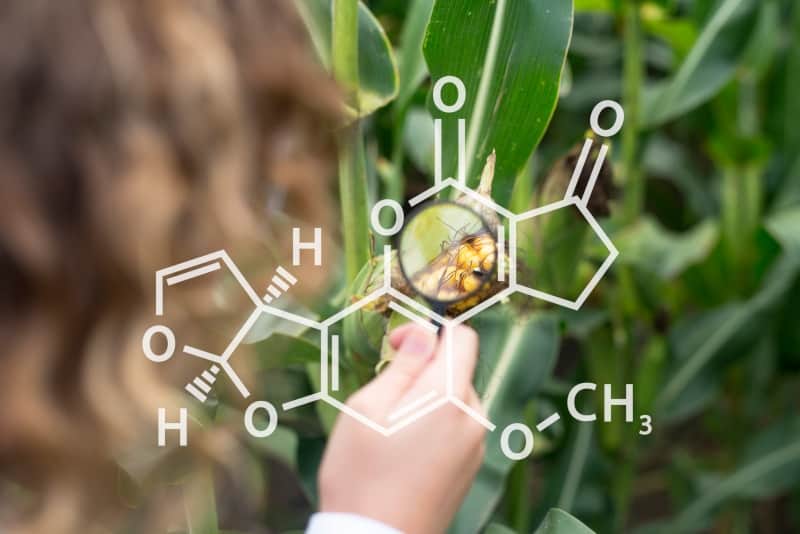Mold Toxins Damage The Liver – Antioxidant Supplements Might Help
Wheat mill workers frequently suffer from health problems caused by toxic fungi in the air. A group of Egyptian researchers recently discovered that supplementation with zinc and vitamin C can ameliorate oxidative stress and toxic liver damage resulting from occupational exposure to a potent mold toxin.
By Gehan Moubarz
Aflatoxins – a group of toxins produced by some fungi – are one of the most common occupational health hazards affecting workers worldwide. They are often found on agricultural crops such as corn and peanuts, especially in regions with warm and humid climates.
One of the most dangerous toxins produced by fungi, Aflatoxin B1 derives from fungi of the genus Aspergillus, which consists of a few hundred mold species. The negative effects of exposure to Aspergillus are extensive – these molds can cause not only allergies and asthma, but also liver damage and even liver and kidney cancer.
Toxic dust affects flour mill workers’ health
Several studies have demonstrated the strong influence of temperature and humidity on the growth and spread of fungi in different working environments. It has also been observed that some industries are particularly affected by airborne fungi – with adverse effects on workers’ health. One example is the wheat flour industry, where the process of wheat milling can create aflatoxin-contaminated wheat dust.

A group of scientists from the National Research Centre, Giza and Helwan University in Egypt set themselves the task of figuring out how to minimize this public health risk. Based on previous research that indicated beneficial effects of antioxidant supplements on toxic liver damage, they conducted a clinical trial, in which they provided 35 wheat mill workers with vitamin C and zinc tablets for one month.
By performing blood tests before and after supplementation, they discovered a significant decrease in enzymes indicative of liver damage. Also, the concentration of a specific tumor marker had decreased after one month of supplementation.
Vitamin C and zinc protect our cells
Zinc and vitamin C are effective biological antioxidants, meaning they prevent the formation of free radicals – extremely reactive oxygen molecules able to cause damage to parts of the cell. Contrary to the actions of antioxidants, aflatoxins create oxidative stress by inducing the production of free radicals.
To alleviate these effects and to protect workers from liver damage, the researchers recommend that supplementation with vitamin C and zinc should be adopted as a new health policy in the workplace. Based on the promising results of their study, they suggest further research on a larger scale among workers exposed to aflatoxins and airborne fungi in different industries.
Read the original article here: